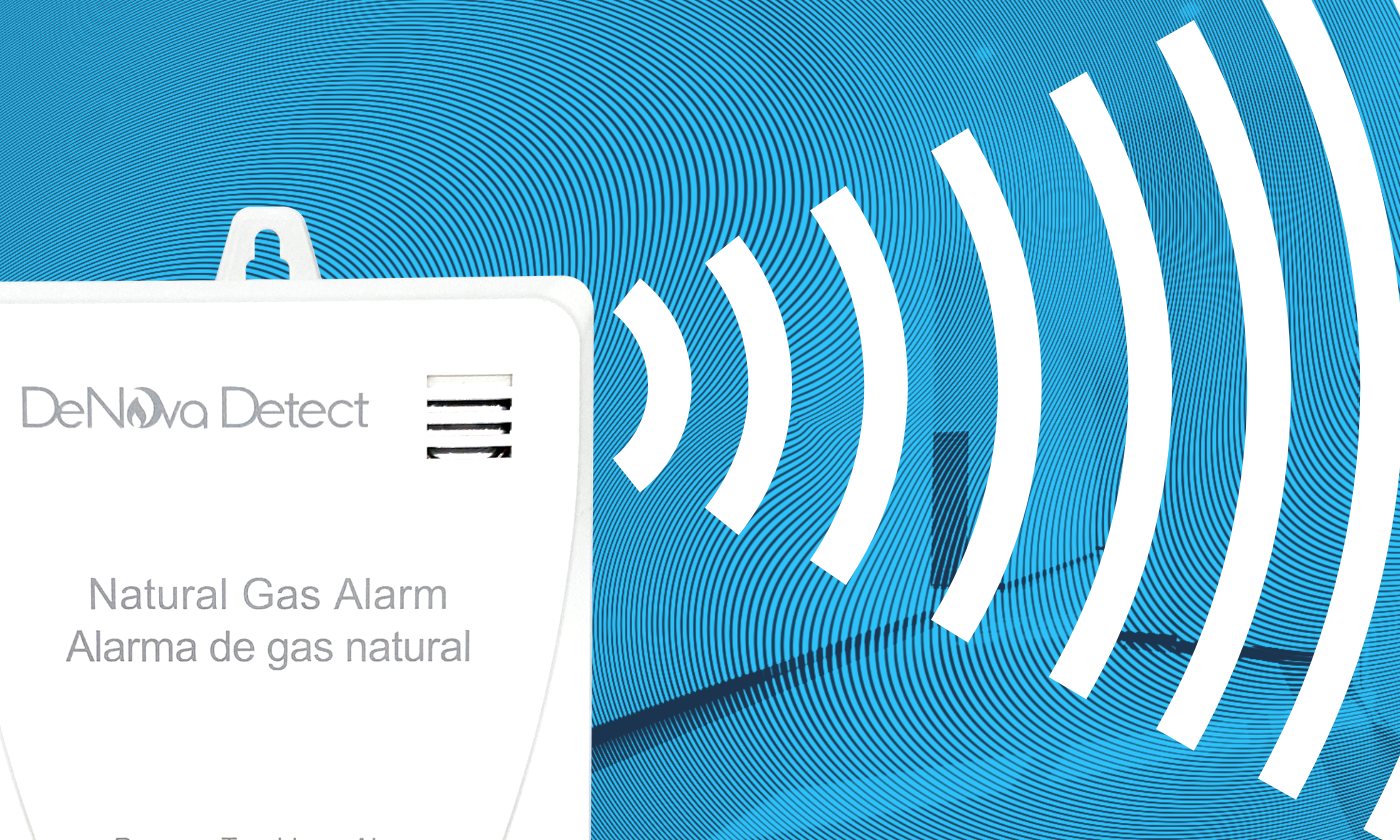Natural gas is an efficient and convenient energy source that powers many everyday aspects of our lives, from heating our homes to fueling our stoves. However, it's important to remember that prioritizing safety is the most essential step in using this power source in your home. A natural gas leak can pose serious risks to you, your loved ones, and your property. Whether you're a homeowner or a renter, knowing how to respond when your natural gas detectors go off is crucial.
This is our comprehensive guide to handling a suspected gas leak, from recognizing the signs and educating yourself and others to notifying emergency response services and using natural gas detectors effectively to safeguard your home.
Recognizing the Signs of a Natural Gas Leak
Your senses can be your first line of defense against a potential natural gas leak. Keep an eye— or rather a nose—out for the distinct rotten egg smell that resembles sulfur or even a hissing sound near a gas line. Be aware of any unexplained dead patches in your lawn or excessive condensation on windows. Additionally, pay attention and listen to your body. If you feel fatigued or nauseous, have trouble concentrating, lose consciousness, or have memory problems, respond immediately. These are all signs of a potential natural gas leak—take them seriously and be prepared to take action.
Create a Family Emergency Plan
It is important to have a comprehensive and uniform response plan in place, agreed upon by everyone residing in your home. Take these steps to establish a well-rounded response in case a situation arises:
Discuss and Plan
Gather your family members or household occupants to discuss and create an emergency plan. Determine a designated meeting spot outside your house or apartment, establish communication protocols, and assign specific actions to each person.
Practice Drills
Regularly conduct gas leak evacuation drills with your family members. These practice sessions will ensure that everyone knows what to do and where to go in case of an emergency.
Initial Actions
If you suspect a gas leak in your home, follow these three steps before you do anything else:
Stay Calm
The first and most important step is to remain calm. If your gas detector alarms go off or you suspect a gas leak, panic can cloud your judgment and hinder your ability to take appropriate actions.
Open Windows and Doors
Ventilation is key in these situations. Open windows and doors to allow any accumulated gas to disperse outside. Avoid turning on/off exhaust fans or any electrical switches that could cause sparks, as these might ignite the gas.
Do Not Use Flames or Electrical Devices
Refrain from using any open flames, including matches and lighters, as well as electrical devices like phones and light switches. These could trigger a spark and lead to ignition.
Notify Others
After taking the first steps, it is time to notify other people in the building of the hazard and respond appropriately, following any established and agreed-upon emergency plans.
Alert Occupants
If you live in a multi-unit building, alert your neighbors about the gas leak. This will help ensure that everyone in the vicinity is aware of the potential danger and can evacuate promptly if necessary.
Prevent Entry/Re-entry
While waiting for emergency responders, do not allow anyone to enter the affected building until authorities have determined it safe. This precaution avoids additional risks.
Contacting Emergency Services
Once you're outside and at a safe distance, call your local emergency services or the gas company's emergency line. Report the situation and your location, and follow their instructions. They are trained to handle gas leaks and will guide you through the process.
Document the Incident
Keep Records
While the incident is fresh in your mind, make a record of when you first detected the gas leak, when emergency services were contacted, and any subsequent actions taken. This documentation may be useful for insurance claims or legal purposes.
Contact Insurance
If the gas leak has caused damage to your property, contact your insurance company and provide them with the necessary information. They will guide you through the process of filing a claim.
Avoid Repairs Yourself
Never attempt to fix a gas leak on your own. Gas line repairs require specialized training and equipment. Addressing the issue yourself can result in further complications or even dangerous situations.
Using Natural Gas Detectors
Our top recommendation for protecting your home against a natural gas leak is the proper use of a smart natural gas alarm. Here are some best practices for installing and maintaining one in your home or business:
Proper Placement
To effectively detect gas leaks, it's important to install gas detectors near potential sources of leaks, such as water heaters, stoves, and furnaces. Follow the manufacturer's guidelines for proper placement to maximize their efficiency.
Regular Maintenance
Regularly test your gas detectors according to the manufacturer's instructions. This includes checking the alarms and replacing batteries as needed. Well-maintained detectors are crucial for early detection.
Learn the Alarms
Different gas detectors may have distinct alarm sounds for various situations, such as low battery warnings and gas leak alerts. Familiarize yourself and your family with these sounds so that you can respond appropriately.
DeNova Detect Natural Gas Alarm
At New Cosmos, your safety is our utmost concern, and we are committed to providing you with products that are not only dependable but also offer unwavering support. Our cutting-edge DeNova Detect alarms for natural gas employ advanced patented sensor technology, ensuring swift alerts in the event of a leak. Our alarm leverages advanced sensor technology to alert you 11 minutes sooner than our competitor and is the only battery-powered wireless natural gas alarm in the United States.
Want to learn more about our alarm features and benefits? Visit the Denova Detect website or contact us at info@denovadetect.com.




Leave a comment
This site is protected by hCaptcha and the hCaptcha Privacy Policy and Terms of Service apply.